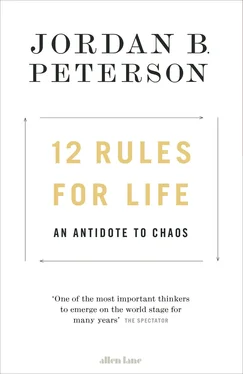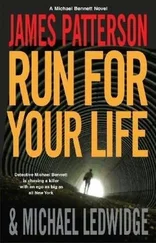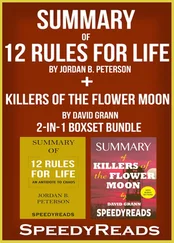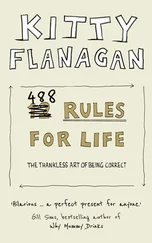My wife and I learned that if you ask yourself such a question, and you genuinely desire the answer (no matter how disgraceful and terrible and shameful), then a memory of something you did that was stupid and wrong at some point in the generally not-distant-enough past will arise from the depths of your mind. Then you can go back to your partner and reveal why you’re an idiot, and apologize (sincerely) and that person can do the same for you, and then apologize (sincerely), and then you two idiots will be able to talk again. Perhaps that is true prayer: the question, “What have I done wrong, and what can I do now to set things at least a little bit more right?” But your heart must be open to the terrible truth. You must be receptive to that which you do not want to hear. When you decide to learn about your faults, so that they can be rectified, you open a line of communication with the source of all revelatory thought. Maybe that’s the same thing as consulting your conscience. Maybe that’s the same thing, in some manner, as a discussion with God.
It was in that spirit, with some paper in front of me, that I asked my question: What shall I do with my newfound pen of light? I asked, as if I truly wanted the answer. I waited for a reply. I was holding a conversation between two different elements of myself. I was genuinely thinking—or listening, in the sense described in Rule 9 (Assume that the person you are listening to might know something you don’t). That rule can apply as much to yourself as to others. It was me, of course, who asked the question—and it was me, of course, who replied. But those two me’s were not the same. I did not know what the answer would be. I was waiting for it to appear in the theatre of my imagination. I was waiting for the words to spring out of the void. How can a person think up something that surprises him? How can he already not know what he thinks? Where do new thoughts come from? Who or what thinks them?
Since I had just been given, of all things, a Pen of Light, which could write Illuminated Words in the darkness, I wanted to do the best thing I could with it. So, I asked the appropriate question—and, almost immediately, an answer revealed itself: Write down the words you want inscribed on your soul. I wrote that down. That seemed pretty good—a little on the romantic side, granted—but that was in keeping with the game. Then I upped the ante. I decided to ask myself the hardest questions I could think up, and await their answers. If you have a Pen of Light, after all, you should use it to answer Difficult Questions. Here was the first: What shall I do tomorrow? The answer came: The most good possible in the shortest period of time. That was satisfying, as well—conjoining an ambitious aim with the demands of maximal efficiency. A worthy challenge. The second question was in the same vein: What shall I do next year? Try to ensure that the good I do then will be exceeded only by the good I do the year after that. That seemed solid, too—a nice extension of the ambitions detailed in the previous answer. I told my friend that I was trying a serious experiment in writing with the pen he had given to me. I asked if I could read aloud what I had composed so far. The questions—and the answers—struck a chord with him, too. That was good. That was impetus to continue.
The next question ended the first set: What shall I do with my life? Aim for Paradise, and concentrate on today. Hah! I knew what that meant. It’s what Geppetto does in the Disney movie Pinocchio, when he wishes upon a star. The grandfatherly woodcarver lifts up his eyes to the twinkling diamond set high above the mundane world of day-to-day human concerns and articulates his deepest desire: that the marionette he created lose the strings by which he is manipulated by others and transform himself into a real boy. It’s also the central message of the Sermon on the Mount, as we saw in Rule 4 (Compare yourself to who you were yesterday …), but which deserve repeating here:
And why take ye thought for raiment? Consider the lilies of the field, how they grow; they toil not, neither do they spin: And yet I say unto you, That even Solomon in all his glory was not arrayed like one of these. Wherefore, if God so clothe the grass of the field, which to day is, and to morrow is cast into the oven, shall he not much more clothe you, O ye of little faith? Therefore take no thought, saying, What shall we eat? or, What shall we drink? or, Wherewithal shall we be clothed? For your heavenly Father knoweth that ye have need of all these things. But seek ye first the kingdom of God, and his righteousness; and all these things shall be added unto you (Matthew 6:28-6:33).
What does all that mean? Orient yourself properly. Then—and only then—concentrate on the day. Set your sights at the Good, the Beautiful, and the True, and then focus pointedly and carefully on the concerns of each moment. Aim continually at Heaven while you work diligently on Earth. Attend fully to the future, in that manner, while attending fully to the present. Then you have the best chance of perfecting both.
I turned, then, from the use of time to my relationships with people, and wrote down and then read these questions and answers to my friend: What shall I do with my wife? Treat her as if she is the Holy Mother of God, so that she may give birth to the world-redeeming hero. What shall I do with my daughter? Stand behind her, listen to her, guard her, train her mind, and let her know it’s OK if she wants to be a mother. What shall I do with my parents? Act such that your actions justify the suffering they endured. What shall I do with my son? Encourage him to be a true Son of God.
To honour your wife as a Mother of God is to notice and support the sacred element of her role as mother (not just of your children, but as such). A society that forgets this cannot survive. Hitler’s mother gave birth to Hitler, and Stalin’s mother to Stalin. Was something amiss in their crucial relationships? It seems likely, given the importance of the maternal role in establishing trust [18217] Lao-Tse (1984). The tao te ching . (1984) (S. Rosenthal, Trans.). Verse 33: Without force: without perishing. Retrieved from https://terebess.hu/english/tao/rosenthal.html#Kap33
—to take a single vital example. Perhaps the importance of their motherly duties, and of their relationship with their children, was not properly stressed; perhaps what the women were doing in their maternal guise was not properly regarded by husband, father and society alike. Who instead might a woman produce if she was treated properly, honourably and carefully? After all, the fate of the world rests on each new infant—tiny, fragile and threatened but, in time, capable of uttering the words and doing the deeds that maintain the eternal, delicate balance between chaos and order.
To stand behind my daughter? That’s to encourage her, in everything she wants courageously to do, but to include in that genuine appreciation for the fact of her femininity: to recognize the importance of having a family and children and to forego the temptation to denigrate or devalue that in comparison to accomplishment of personal ambition or career. It’s not for nothing that the Holy Mother and Infant is a divine image—as we just discussed. Societies that cease to honour that image—that cease to see that relationship as of transcendent and fundamental importance—also cease to be.
To act to justify the suffering of your parents is to remember all the sacrifices that all the others who lived before you (not least your parents) have made for you in all the course of the terrible past, to be grateful for all the progress that has been thereby made, and then to act in accordance with that remembrance and gratitude. People sacrificed immensely to bring about what we have now. In many cases, they literally died for it—and we should act with some respect for that fact.
Читать дальше












